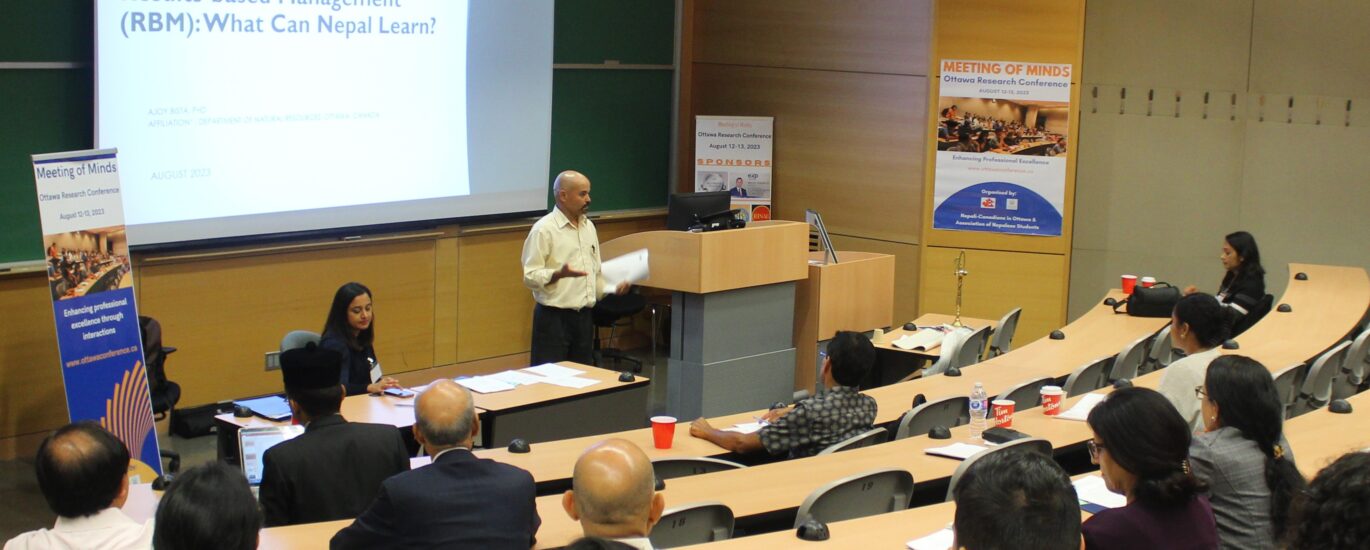Ajoy Bista.
Tracking program results is a critical aspect of development programs. An adage states that if you cannot track something you cannot manage it. Result tracking provides benefits to all parties in the society. However, result tracking is one of neglected part of development programs, especially in countries like Nepal.
By drawing from academic literature, empirical studies and expert insights, this paper provides: 1) an overview of the benefits of result tracking; 2) the challenges encountered by professionals in this field; and 3) the potential solutions to overcome these challenges.
The fundamental challenges in tracking program results include data collection, quality, integrity, management, security, and ownership. Program managers, auditors, evaluators often struggle with obtaining relevant and reliable data, more so in developing countries like Nepal. Likewise, limited availability of resources, both in terms of funding and human capital restrain comprehensive result tracking efforts. More importantly, the society’s culture dictates how result tracking is valued and used.
This paper presents potential solutions to the challenges. It highlights the importance of establishing clear program objectives and aligning evaluation efforts accordingly. This includes the significance of developing appropriate evaluation frameworks, defining measurable outcomes, and identifying trackable indicators.
Evidence-based decision-making and program improvement are crucial to Nepal’s socio- economic development. An understanding of benefits, challenges, and solutions can help all parties in the society- be it the corporate planners, program managers and elected official. Above all, the program beneficiaries, who are often the underprivileged group of the society when it comes to developing countries like Nepal.
View/Download the presentation from here.
Keywords: Theory of change, inputs, outputs, outcomes, Lessons learned, Planning
Author: Ajoy Bista, PhD
Audit and Evaluation Branch, Natural Resources Canada






